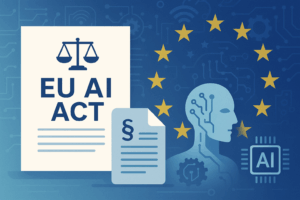The Growing Pervasiveness of AI Ethics in Consumer Product Personalization
Artificial intelligence (AI) has seamlessly integrated into the fabric of consumer products, marking a significant shift in how technology interacts with and enhances our daily lives. This advancement brings with it a host of ethical considerations, particularly concerning privacy, bias, and manipulation. As we journey through the evolving landscape of the ethics of AI personalization, it becomes increasingly vital to strike a balance between harnessing the benefits of this technology and addressing the ethical challenges it presents. In this exploration, we delve into the complexities of AI-driven personalization, examining how it reshapes consumer interactions and the ethical implications that emerge from its widespread adoption.
Consumer Products
The integration of AI in consumer products has revolutionized the way businesses interact with their customers. Personalized experiences, once a luxury, have now become an expectation in the consumer journey. This transformation is driven by AI’s ability to analyze vast data sets, uncovering insights into consumer behavior and preferences. As a result, businesses can offer highly tailored experiences, enhancing customer satisfaction and loyalty. However, this level of personalization does not come without its ethical dilemmas. Concerns over data privacy, the potential for algorithmic bias, and the risk of manipulative practices are at the forefront of discussions about AI in consumer products. These concerns underscore the need for a thoughtful approach to implementing AI personalization, one that respects individual privacy and promotes fairness and transparency.
The Benefits of AI-Driven Personalization
AI-driven personalization in consumer products is not just a technological innovation; it’s a paradigm shift in the customer experience. This technology’s ability to process and analyze vast amounts of data enables businesses to understand and anticipate customer needs like never before. Personalization, powered by AI, goes beyond mere product recommendations; it creates an immersive experience where every interaction is tailored to the individual customer.
E-Commerce
In the realm of e-commerce, AI personalization has become a key differentiator for businesses. By leveraging AI algorithms, companies can offer personalized product recommendations, tailored content, and targeted advertising, all of which enhance user engagement and satisfaction. This level of personalization not only improves the customer experience but also drives business outcomes. Personalized interactions lead to higher conversion rates and increased customer loyalty, ultimately impacting a company’s bottom line.
Beyond Marketing
Moreover, AI personalization extends beyond marketing. It plays a pivotal role in improving operational efficiency. AI algorithms can analyze consumer data to identify patterns and preferences, enabling businesses to optimize their inventory, streamline marketing campaigns, and enhance customer service. This operational efficiency not only reduces costs but also allows businesses to respond more effectively to market trends and consumer needs.
As we delve deeper into the benefits of AI-powered personalization, it’s essential to recognize the delicate balance between leveraging technology for business growth and ensuring ethical considerations are not overlooked. The next sections of this article will explore the ethical boundaries of AI personalization and the real-world examples that highlight these challenges.
Ethical Boundaries of Ethics in AI Personalization
The ethical implications of AI in consumer product personalization are as profound as they are complex. Privacy concerns are at the forefront of this ethical debate. As AI systems collect and analyze personal data, including sensitive information like demographics, browsing history, and purchase patterns, questions arise about the extent to which this data collection infringes on individual privacy. Balancing the benefits of personalization with the imperative to protect consumer data is a challenge that requires careful consideration and ethical decision-making.
Bias in AI Algorithms
Another critical aspect of the ethical debate surrounding AI personalization is the issue of bias. AI algorithms, by their very nature, learn from the data they are fed. If this data contains biases, the algorithms can perpetuate and even amplify these biases, leading to unfair or discriminatory treatment of certain groups of consumers. This risk of algorithmic bias raises significant concerns about fairness and equality in AI-driven personalization. It highlights the need for businesses to critically examine their data and algorithms to ensure they are not reinforcing existing societal biases.
Manipulation Techniques
Manipulation is another ethical concern associated with AI personalization. AI-powered persuasion tactics, such as targeted advertising and nudge techniques, have raised questions about consumer autonomy and freedom of choice. While these tactics can be effective in influencing consumer behavior, they also risk undermining consumer decision-making, leading to ethical dilemmas about the extent to which businesses should use AI to influence customer choices.
In the next section, we will explore real-world examples of ethical concerns in AI personalization, providing a practical perspective on the challenges and considerations that businesses face in implementing AI-driven personalization strategies.
Real-world Examples of Ethics in AI Personalization
The ethical challenges of AI personalization are not just theoretical; they have manifested in various high-profile cases, highlighting the practical implications of these concerns. Amazon‘s targeted advertising strategies, for example, have come under scrutiny for displaying discriminatory ads based on user demographics. This case raises questions about the fairness and bias of AI algorithms and the need for businesses to critically examine their data practices to prevent discrimination.
Facebook and Cambridge Analytica
Facebook’s handling of user data, particularly in the context of the Cambridge Analytica scandal, is another example of the ethical challenges associated with AI personalization. The scandal, which involved the misuse of Facebook data to influence elections, brought to light the potential for AI-powered manipulation and the need for greater transparency and accountability in how personal data is used for personalization purposes.
These real-world examples demonstrate the practical challenges businesses face in implementing AI personalization strategies. They underscore the need for a thoughtful and ethical approach to AI personalization, one that balances the benefits of this technology with the imperative to protect consumer rights and promote fairness.
Mitigating Ethical Concerns
Addressing the ethical concerns associated with AI personalization requires a multi-faceted approach. Transparency is a key component of this approach. Companies must be transparent about their data collection practices and how they use AI for personalization. This transparency helps build trust with consumers and ensures that businesses are held accountable for their data practices.
Protecting Consumers
Empowering consumers to control their data is another critical step in mitigating ethical concerns. Consumers should have the ability to opt out of personalized advertising and have control over how their data is used. This empowers them to make informed choices about their data and protects their privacy and autonomy.
Finally, addressing algorithmic bias is essential for mitigating ethical concerns in AI personalization. Businesses must employ techniques to identify and address bias in their AI algorithms, ensuring that their personalization strategies are fair and do not discriminate against certain groups of consumers. This requires a commitment to continuous improvement and a willingness to critically examine and refine AI algorithms to ensure they are as unbiased and fair as possible.
The Need for Industry-Wide Standards and Informed Consumer Choices
In conclusion, the ethics in AI personalization and their implications, are complex and multifaceted. Balancing the benefits of AI-powered personalization with the need to uphold ethical principles is a challenge that requires careful consideration and a thoughtful approach. As we navigate this landscape, it’s essential to foster an environment where innovation thrives while upholding the highest ethical standards.
The development of industry-wide standards and regulations is crucial for ensuring the responsible use of AI in consumer products. These standards should provide guidelines for data privacy, algorithmic fairness, and consumer autonomy, helping businesses navigate the ethical challenges of AI personalization.
Information Provision and Ethics in AI Personalization
Consumers also have a role to play in this landscape. By being informed about the ethical implications of personalized advertising and taking proactive steps to protect their privacy, consumers can help shape the development of these technologies in a way that respects their rights and values.
In navigating the ethics of personalization, it’s imperative to foster an environment where innovation thrives while upholding the highest ethical standards. The call for industry-wide standards and regulations is not just a matter of compliance but a commitment to ethical stewardship in the age of AI.
Consumers, too, have a role to play. By being informed about the ethical implications of AI personalization and taking proactive steps to protect their privacy, they can help shape the development of these technologies in a way that respects their rights and values.
In conclusion, as we navigate the ethics of AI in personalization, it’s vital to strike a balance between the benefits of AI-powered personalization and the ethical principles that govern its use. The development of comprehensive guidelines, informed consumer choices, and ongoing dialogue among stakeholders will be crucial in shaping a future where AI personalization is both beneficial and ethical.
Frequently Asked Questions
- What are the primary ethical concerns with AI in consumer personalization?
Key concerns include privacy issues, potential biases in algorithms, and the impact on consumer autonomy. - How can businesses address these ethical challenges?
Companies can implement transparent data practices, offer user control over data, and ensure algorithmic fairness. - Why is consumer autonomy important in AI personalization?
Consumer autonomy is crucial to prevent manipulation and preserve individual decision-making in the face of AI-driven recommendations.






